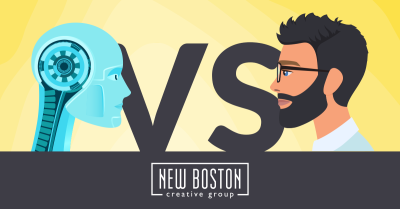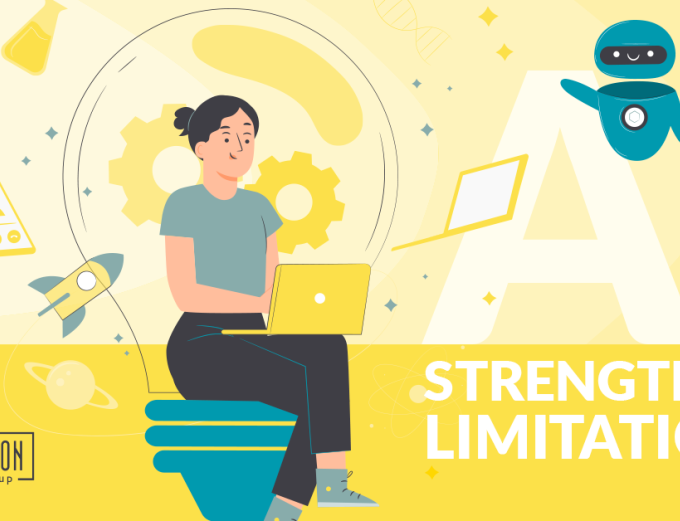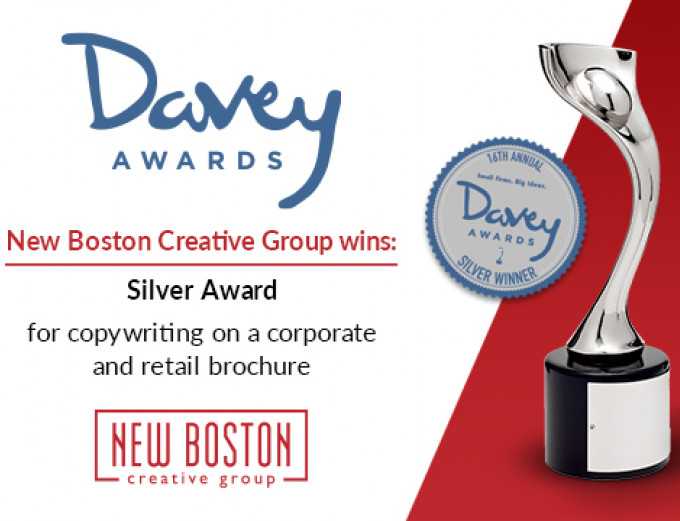Artificial Intelligence and the Future of Copywriting
by New Boston on August 30, 2022
The digital content marketers at New Boston Creative Group are a forward-thinking, tech-savvy group who completely geek out on all the ways technology allows us to learn about our clients’ audiences and reach out to them in new and creative ways. No Luddites here! That is, until the day we learned machines were coming for our jobs.
Years ago, when I first heard talk of artificial intelligence (AI) threatening to change the makeup of our workforce, it was limited to automating part of an assembly line or other manufacturing process. “It’s coming,” economists would say, “and it’s going to require millions of us to rethink how we make a living.” I tucked the idea away in the “possible but not probable” file as far as my own job went. Then self-checkout stations began to outnumber traditional lines at grocery stores and it became increasingly unlikely I’d speak to a representative when I called a customer service line. I was forced to refile the idea that AI would impact my work under “things to worry about, but later.” Later came earlier than expected when pizza chains began testing delivery robots, cars began to drive themselves and … Grammarly entered the scene.
Advances in AI have resulted in a wave of content automation programs like Grammarly, claiming to edit — or write — high-quality content for ads, websites, emails and even blogs in a fraction of the time it takes us humans. What does that mean for copywriters and the companies we work for?
How could a software program possibly do this work? These professions require empathy, creativity and a great deal of nuance. In marketing, we strive to create copy that’s persuasive, witty, humorous and relatable — ANYTHING but impersonal. Marketing messages are everywhere, and our society is skilled at recognizing insincere or disingenuous solicitation. Consider, too, that the English language is notoriously inconsistent and often has even native speakers scratching their heads over certain usage conventions. How can a machine navigate all of that?
While they have yet to become self-aware, computers can get impressively close to empathy through a fascinating process called computational linguistics (CL). The Department of Linguistics at the University of Florida defines CL as “the study of methods that leverage computers’ enormous calculating power to recognize and generate patterns in language.” From CL, the concept of natural language processing (NLP) was born, which uses something called natural language understanding to determine the context of content, then goes on to create content using natural language generation.
Despite the names of these processes, they’re not exactly natural. They piece together scores of small, categorized chunks of copy using machine learning to get the tone and meaning right, apply audience data to enhance performance and compose the message. The end result often does contain errors such as incomplete sentences, and should always be reviewed and polished by us humans.
The more I learned, the more my fears subsided. These programs serve more as assistants to copywriters than replacements. And to my surprise, I’ve been using NLP for some time now! Already part of our daily lives, it’s used to tailor online search results and is the magic behind the predictive text that finishes your queries or your sentences when working in Google Docs. Siri, Alexa, automated phone prompts … all NLP. When marketers like us place Google search ads and conduct keyword research for our clients, we’re benefitting from NLP.
At the end of the day, AI copy generators can’t be trusted to replace copywriters. What they can do, however, is help us generate more content, faster, and deliver it to a more precise target. We can delegate the repetitive, tedious tasks and focus on more creative projects. The technology can repurpose what we’ve written into copy that’s personalized to as many audience segments as we’d like. It can take a collection of ideas and quickly create a first draft for us to massage into the finished product.
We humans still reign supreme over robots! We’re the colleagues who know our clients and understand their goals and audiences, so let us know if you have a need for compelling content — websites, newsletters, ads, social media posts, surveys, press releases and blogs. Give us a call — and talk to a real human!






